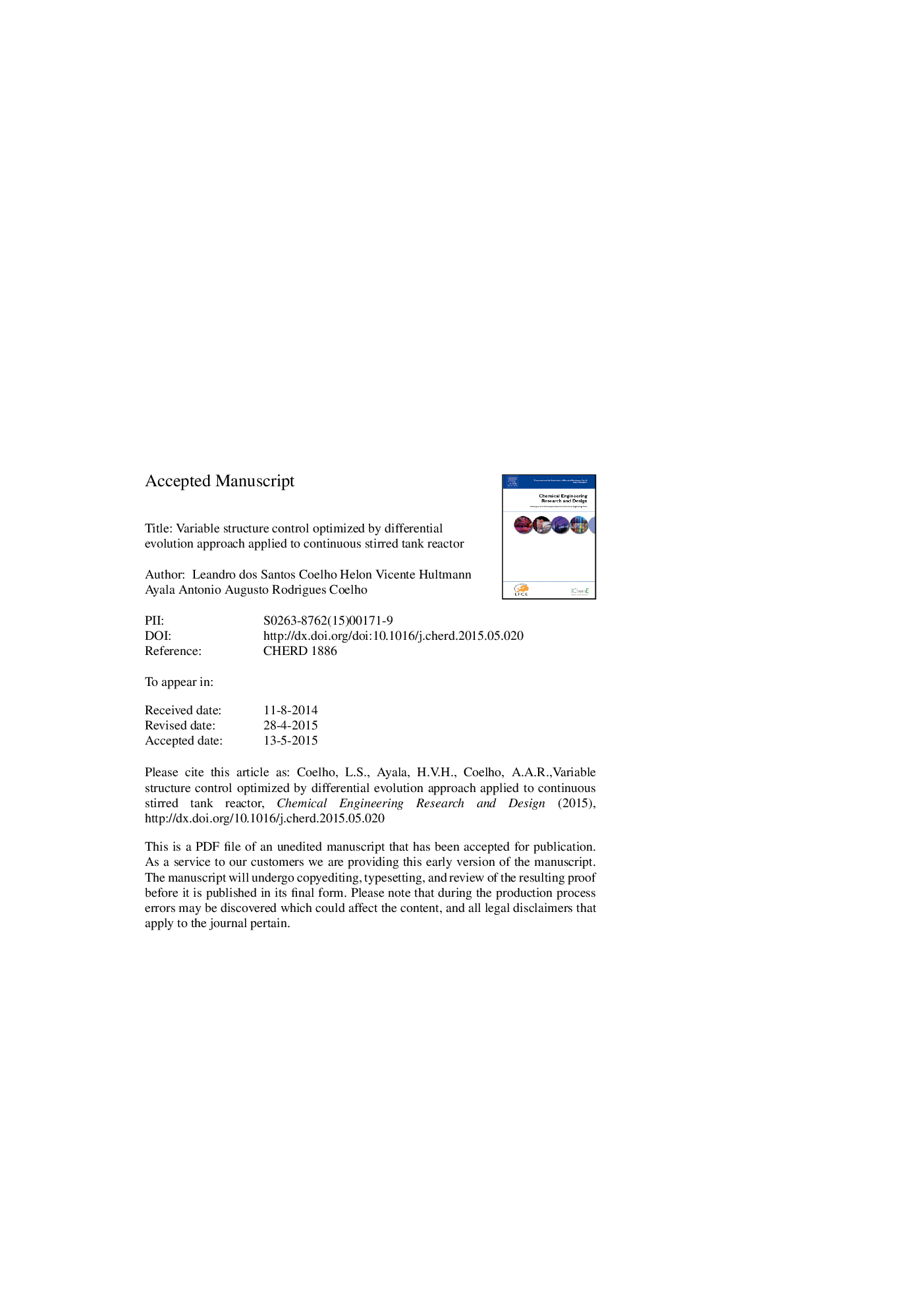| Article ID | Journal | Published Year | Pages | File Type |
|---|---|---|---|---|
| 620384 | Chemical Engineering Research and Design | 2015 | 22 Pages |
Abstract
This paper considers the control design based on self-tuning discrete variable structure control (VSC) technique. A novel and systematic VSC design methodology is proposed, which integrates an estimator based on recursive least-squares algorithm, a discrete quasi-sliding surface, and an optimization method. Contrary to the trial and error tuning of the variable structure feedback gains reported in the literature, the controller parameters selection in this paper is done using an improved differential evolution (IDE) optimization approach. This paper introduces an improvement to the original differential evolution (DE) to enhance the convergence rate during the optimization cycle. Our IDE algorithm utilizes a population diversity measure to tune the mutation factor. The proposed IDE has been assessed to VSC design in order to control a continuous stirred tank reactor with nonlinear dynamic behavior. Simulation results reveal that the IDE is applicable and promising for the VSC design. Moreover, when compared to classical DE, IDE performed better in the task of VSC tuning in terms of the speed of convergence and solution quality.
Keywords
Related Topics
Physical Sciences and Engineering
Chemical Engineering
Filtration and Separation
Authors
Leandro dos Santos Coelho, Helon Vicente Hultmann Ayala, Antonio Augusto Rodrigues Coelho,
